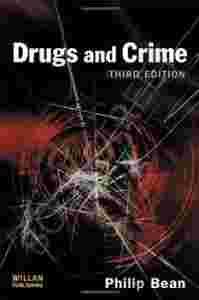|
A high proportion of crimes committed are
drugs-related, with many offenders reporting drug use
prior to the commission of their offence. However, the
direct link between drug taking and crime is often less
clear than is supposed if only because many of those
offenders would have committed offences anyway, and
these offences need to be separated from those that are
directly caused by drugs. Attempts to address many of
these and related issues have been bedevilled by
misunderstanding and a lack of consensus on the nature
of the relationship between drugs and crime.This book is
a major contribution to this debate, and provides an
authoritative and much-needed overview of the range of
issues associated with drugs-related crime. The author
pays particular attention to policing drugs and drug
markets and the way they operate, so that a central
theme of the book is the importance of reducing supply
at local, national and international levels.Accordingly
there are chapters on the drugs-crime link, sentencing
drug offenders, policing drug offenders including the
use of informers, coercive treatment, trafficking and
laundering, and on gender issues, including the
treatment of women drug users.This updated and expanded
new edition builds upon the strengths earlier editions
of the book. It has been updated throughout, includes
new information on police tactics such as 'stop and
search' and 'test purchase', and has an entirely new
chapter on the legalisation debate.Philip Bean is one of
the UK's leading authorities on drugs and crime, and has
published widely in this field. He is Emeritus Professor
of Criminology at Loughborough University, and a former
director of the Midlands Centre for Criminology and
Criminal Justice. He was also president of the British
Criminological Society, (1[zasłonięte]996-19) and is currently an
Associate of the General Medical Council. His most
recent book is ''Madness and Crime'', published by
Willan in 2007. |
|

